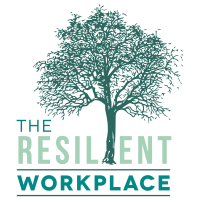How has the coronavirus pandemic affected mental health and how can we help?
The Coronavirus pandemic has restructured our lives in unprecedented ways. Social distancing measures, working from home and lack of contact with friends and family, coupled with anxiety about contracting the virus, have had a negative impact on the mental health of many.
Mental health charity Mind reported that more than half of adults and over two thirds of young people have felt their mental health worsen during lockdown. Prioritising mental health has never been more critical than it is now.
Additionally, some subsections of the population feel the effects of the pandemic more severely, and are therefore more at risk of experiencing declining mental health or thoughts of harming themselves.
1. Young people (18-24) According to Mind, young people are more likely to have experienced poor mental health during lockdown than adults, with over two thirds of young people reporting that their mental health got worse during lockdown. For university students, this figure jumps to 73%. The main concerns for young people are loneliness and isolation, concerns about school, college or university work and a breakdown in routine, as well as fears about the future.
2. Those with existing mental health conditions
People with experience of mental health problems are more likely to see their mental health worsen as a result of coronavirus restrictions. According to Mind, ¾ of adults and 88% of young people with experience of mental health problems had a below average wellbeing score during lockdown. People with eating disorders, OCD, PTSD and personality disorders are affected more than those with other diagnoses.
3. Older adults and those who are shielding
Lockdown has brought social isolation to many, particularly people living alone or those who have been shielding. Social isolation and disconnection (which are both known to have a negative impact on mental health) pose a serious public health concern among older adults especially. Older adults experienced disproportionately greater adverse effects from the pandemic such as higher mortality, concerns about access to care and difficulty in adapting to technologies like telemedicine. There is particular concern for those in residential care facilities, where contact with friends, family, and caregivers has become limited.
4. Young mothers
There are concerns that the uncertainty of the coronavirus and social isolation is putting more pressure on parents while reducing their access to support. From the first to the third week of lockdown the number of adults that contacted the NSPCC Helpline about parental mental health increased by just over a quarter. Mothers in particular have felt adverse effects from the pandemic. When schools closed across the UK on 23 March 2020, women found themselves taking on a disproportionate amount of care giving duties. Consequently, women have had to cut back on paid work in order to care for children and this slowing of economic progress for women has also taken its toll on their mental health.
Though conflating declining mental health with suicide and suicide risk should be avoided, evidence shows that alongside an overall trend of decline in mental health there has also been an increase in suicidal thoughts. Research by the British Journal of Psychiatry found that the rates of suicidal ideation increased in the first weeks of lockdown, with one in seven young adults reporting thoughts of suicide.
According to Samaritans, because of the time it takes to register suicides it’s too early to know the effect of the pandemic on suicide rates. However, the effects of the pandemic are being felt disproportionately by the most vulnerable in society and are exacerbating factors we know are related to suicide, such as: negative thoughts about the future, reduced resilience, loss, rumination and feeling like a burden.
The Suicide First Aid (SFA) Understanding Suicide Intervention course can help support those who are at risk of suicidal thoughts. The half-day virtual training course covers the skills needed to identify someone who may be having thoughts of suicide, to help them stay safe and to pass the person on to a suicide first aider.The course teaches suicide intervention skills that can be applied to professional or personal settings, and can be used as a stand-alone programme or as part of a journey to learn suicide prevention skills.
With more than half of people experiencing worsening mental health during the pandemic, prioritising mental health has never been more important. Understanding the facts about suicide and how to identify someone who may be experiencing suicidal thoughts could save a life.
If you or someone you know are affected by the issues talked about in this article, Samaritans are available 24 hours a day for anyone struggling to cope. Call 116 123 for free or email jo@smaritans.org




